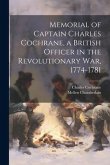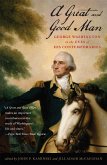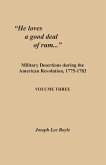Few soldiers contributed more to America's victory in the Revolutionary War than Daniel Morgan, the rugged rifle commander from Virginia. One of the first to answer the Continental Congress's call for troops in 1775, Morgan led a company of hardy Virginia riflemen to Boston, marching nearly 600 miles in just three weeks. Within a month of his arrival, Morgan and his riflemen joined Colonel Benedict Arnold on an epic march through the wilderness of Maine and Canada to attack the British stronghold of Quebec. When Arnold was wounded in the pre-dawn attack on the fortress city, Morgan stepped forward to command. Alas, the attack on Quebec failed and after eight months of captivity, Morgan was exchanged and back with the American army. His heroic deeds at Quebec earned him a promotion to colonel and the notice of General Washington, who placed Morgan in command of 500 select riflemen. Morgan and his riflemen performed brilliantly in two fierce battles at Saratoga in the fall of 1777 and, after the American victory there, rejoined General Washington's army at Valley Forge. Morgan was respected throughout the army, but General Washington's failure to select Morgan to lead the newly organized corps of light infantry in 1779 prompted the aggrieved hero of Quebec and Saratoga to resign his commission in protest. Congress refused to accept Morgan's resignation, however, and instead placed him on indefinite furlough. This abruptly ended in 1780 when British success in the South brought Morgan back to the battlefield, this time as a newly promoted brigadier-general. Detached by General Nathanael Greene as an independent command, Morgan attracted the notice of the British in South Carolina, who moved to trap and destroy Morgan and his detachment of light infantry. Instead, the decisive battle of Cowpens was waged and once again Daniel Morgan led his troops to a much needed American victory. Sadly, declining health forced Morgan from the field of battle within weeks of his victory at Cowpens and though he attempted to return at Yorktown, he was unable to recover in time. Morgan's absence at Yorktown did nothing to diminish his significant contributions to the American cause, contributions that were recognized by his contemporaries and perhaps best expressed by his minister at Morgan's funeral in 1802: I think we may venture to assert, that [Morgan] has not left another behind him to whom we are so much indebted for our Independence and Liberty. A wealth of portraits and maps; and, a full-name, place and subject index add to the value of this work.
Hinweis: Dieser Artikel kann nur an eine deutsche Lieferadresse ausgeliefert werden.
Hinweis: Dieser Artikel kann nur an eine deutsche Lieferadresse ausgeliefert werden.








